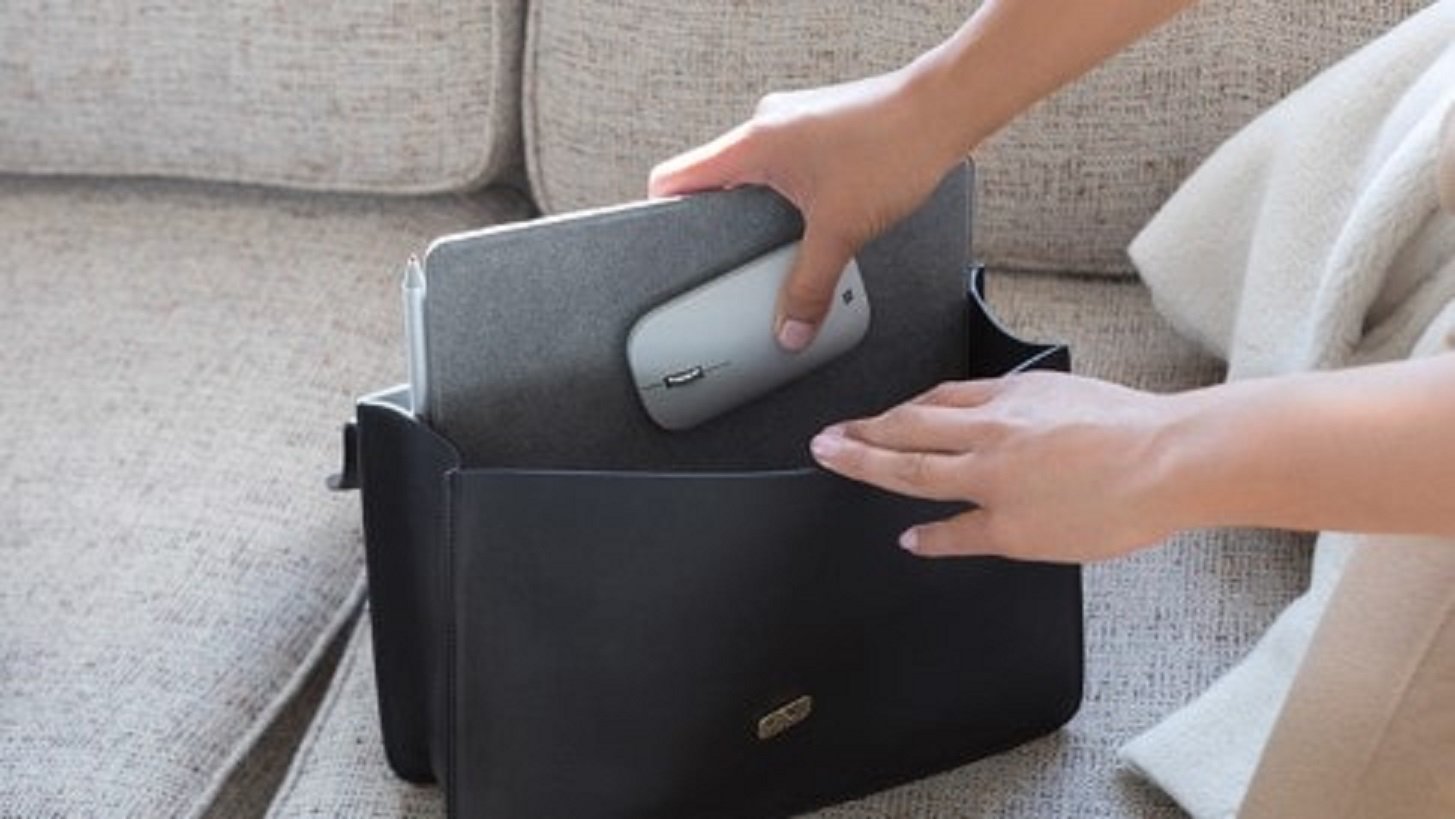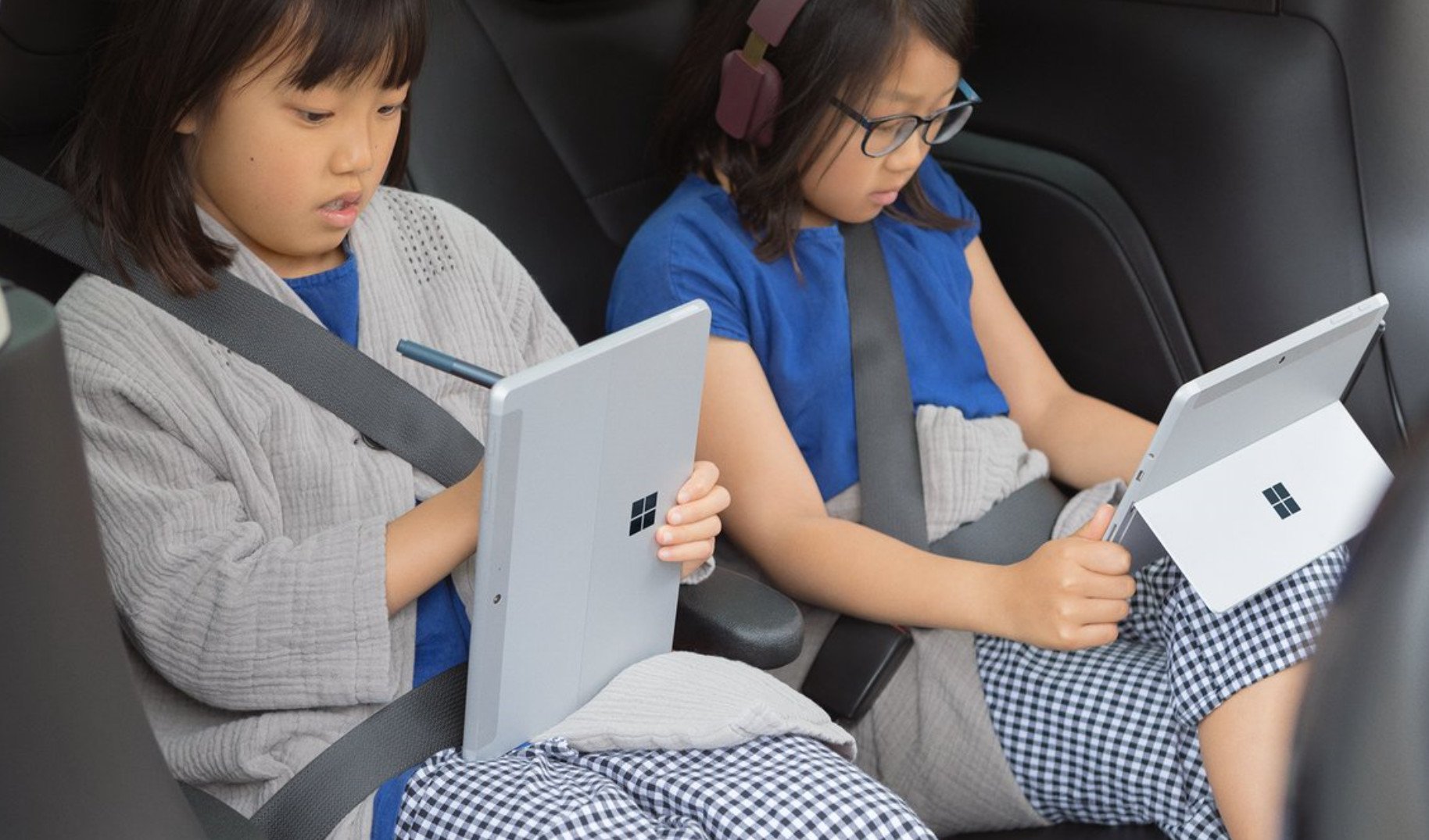How Surface Go is paving the way to Surface Andromeda
Microsoft recently launched its most mobile Surface yet, but it wasn't the long-awaited Surface "Andromeda" pocket PC.

All the latest news, reviews, and guides for Windows and Xbox diehards.
You are now subscribed
Your newsletter sign-up was successful
Microsoft's new 10-inch Surface Go, unlike Andromeda, isn't pocketable but does introduce a degree of mobility. This is particularly true of the LTE version, that Surface creator Panos Panay, said in a recent interview wasn't possible with previous Surfaces.
Additionally, when asked about a future Surface Phone as a potentially smaller Surface Go, Panay asserted in the future communication, not the phone, will change, and devices would "wrap" around those communication needs. He added as Microsoft continues to push, Surface Go leads to a place that how, where, and what people use to communicate will change with that and future devices. Context-conforming form factors drive Microsoft's computing vision.
In fact, Panay's statements added the context of Microsoft's long-term mobile vision to its Surface Go positioning as an ultra-portable PC that, like smartphones, "goes everywhere users go." He added Surface Go is both an incredible communication and productivity device. Microsoft's iterating on this highly mobile PC that provides uncompromised productivity (per Panay), can benefit its rumored Andromeda Pocket PC category. Surface Go introduces ideologically, technologically and in use cases across work and life, PC power combined with smartphone-like constant presence that Surface Andromeda category pocket PCs are anticipated to bring in an even more refined package.
Related: How Surface Andromeda can disrupt the market
Surface form is a factor
From detachable keyboards to reclining displays Surface devices, including Surface Go, reflect Panay's belief that form factor must adapt to users. Surface Go is capable of the productivity and context conformity of its larger counterparts, while its smaller and thinner design makes constantly carrying it, in a small bag, for "everyday work and play" far more practical. Additionally, Microsoft's tagline, "Surface Go is by your side wherever you are," deliberately targets smartphone's "extra appendage" position in our lives.
Microsoft is positioning Surface Go for the non-phone tasks for which smartphones are used. And despite the social stigma, Microsoft is pushing this diminutive tablet for mobile photography as well.
Panay stressed Microsoft opted for full Office on Surface Go because it wanted users to be able to do everything they wanted without limitation. And also be able to detach the keyboard and surf the web, watch Netflix, listen to music and use Store apps that bring the lightweight mobility users want. This is important insight into Microsoft's mobility vision.
All the latest news, reviews, and guides for Windows and Xbox diehards.
New 10” #SurfaceGo is perfect for all your daily tasks, including the @Windows and @Office experience you know. From email and browsing, to unwinding with a favorite show, Surface Go is by your side wherever you are. https://t.co/XgThO5Lwgz pic.twitter.com/KDY6iRz8xQNew 10” #SurfaceGo is perfect for all your daily tasks, including the @Windows and @Office experience you know. From email and browsing, to unwinding with a favorite show, Surface Go is by your side wherever you are. https://t.co/XgThO5Lwgz pic.twitter.com/KDY6iRz8xQ— Microsoft Surface (@surface) July 16, 2018July 16, 2018
The company's building hardware and software foundations for a single device future that gives users laptop productivity while providing smartphone-like mobile experiences. Bringing PCs to the cellular roadmap is core to this vision.
Surface Go LTE reveals the range of functionality Microsoft may envision for Surface Andromeda. Andromeda's potential to be folded as a phablet, unfolded as a tablet and docked via Continuum as a PC, represents a single-device-for-all-scenarios that could be the next device "that is always by your side" that Surface Go is currently being marketed as.
Why Surface Andromeda is critical to the Windows ecosystem
Digital notepad precursor

Surface Andromeda's target audience is lateral thinkers. These people like Panay, write their thoughts down as part of their "process." Panay previously kept a Surface Mini bedside for this purpose. He now "lets his thoughts flow through the Surface Pen onto the screen of the Surface Go as a necessary step in his creative process."
As Surface Andromeda's "forerunner," Surface Go's notepad-like dimensions, complemented by Surface Pen, Windows Ink, OneNote, Whiteboard and more may help position Windows devices as professional and personal digital notepads. In fact, Panay's daughters draw on Surface Go daily.
The affordable Surface Go, and potentially even more affordable OEM devices it inspires, are for everyone. If Microsoft's Surface Go strategy works, lightweight, "almost-pocketable" LTE PCs that allow laptop productivity, great mobile experiences, and are always with users may become a successful 2-in-1 PC category that primes the market for Surface Andromeda Pocket PCs.
Microsoft should make and inking-focused cellular Surface Mini
Surface always by your smartphone's side
Surface Go isn't a guaranteed success, but it may further blur the lines between PCs and smartphones. Especially the LTE version that may train users to purchase data through the Windows Store altering the current carrier model. Additionally, as Windows 10 PCs they'll be able to integrate with iPhone's and Android phones through Timeline, Your Phone, Cortana and more.
Microsoft is likely marketing Surface Go as the device that is always by your side in part so that through smartphone integration users will field smartphone notifications from this mobile PC that Microsoft hopes will be the preferred tool for web surfing, reading emails and more. The telephony-enabled Surface Andromeda may ultimately reap the benefits of this smartphone-trumping positioning.
However, the elephant in the room is the shortage of Universal Windows apps which diminishes the mobile appeal of Surface Go and Andromeda. Progressive Web Apps (PWA), offer some hope though they have their limits, and are not off to a roaring start. Still, as Microsoft works to build the number of PWAs prior to a potential 2019 Andromeda launch, Surface Go may be a perfect mobile platform to popularize this growing app solution. As a Surface, Surface Go will likely get Microsoft's full support.
Finally, as a device Panay shared is leading us toward new mobile form factors, Surface Go is an important category to watch if we want a hint of what Andromeda may be.

Jason L Ward is a Former Columnist at Windows Central. He provided a unique big picture analysis of the complex world of Microsoft. Jason takes the small clues and gives you an insightful big picture perspective through storytelling that you won't find *anywhere* else. Seriously, this dude thinks outside the box. Follow him on Twitter at @JLTechWord. He's doing the "write" thing!
